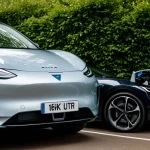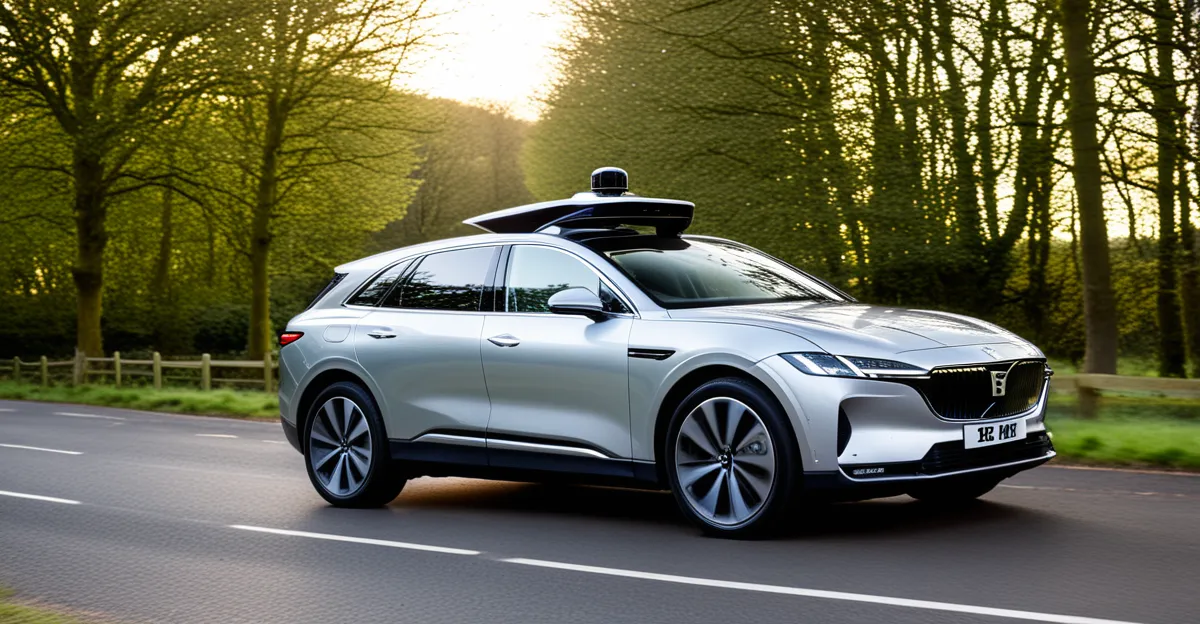UK Car Manufacturers’ Strategic Investments in Autonomous Vehicle Technology
The UK car manufacturers have been channeling significant capital into autonomous vehicle research and development, reflecting a focused industry strategy to secure a competitive edge in this rapidly evolving sector. Jaguar Land Rover and Nissan stand at the forefront, spearheading investments that target next-generation self-driving capabilities.
Jaguar Land Rover, for instance, has allocated substantial funding for developing AI-driven perception systems crucial for safe autonomous navigation. Nissan, meanwhile, is intensifying efforts on sensor fusion and machine learning, critical for real-time decision-making. These investments are not isolated but often complemented by acquisitions and strategic partnerships that bolster their technological prowess.
Also to see : Why Are Electric Vehicles Gaining Popularity in the UK Automotive Sector?
Recent industry moves include funding rounds aimed at startups specializing in lidar and computer vision technologies—key components for vehicle autonomy. Additionally, collaborations with tech firms amplify capabilities while diversifying technical expertise, ensuring that the manufacturers stay ahead in a complex innovation cycle.
This multi-pronged investment approach illustrates how UK car manufacturers are adapting their industry strategies to both tackle the technical demands of autonomous vehicles and to position themselves as leaders in the future mobility landscape. Continual capital allocation towards R&D signals unwavering commitment to this transformative technology.
Also read : What Challenges Does the UK Automotive Industry Face in Transitioning to Electric Vehicles?
Collaborations and Partnerships Accelerating Development
Technology partnerships have become a linchpin in the UK’s autonomous vehicle advancement. Collaborations with tech firms enhance autonomous vehicle development by merging automotive expertise with cutting-edge software and hardware innovations. For example, Jaguar Land Rover’s cooperation with AI startups accelerates AI integration for perception and decision-making systems. Nissan similarly partners with specialized sensor manufacturers to improve real-time data processing.
Joint ventures with firms like Waymo and Oxbotica exemplify strategic alliances driving innovation rapidly. These partnerships extend beyond product co-development to shared data resources and integration protocols, which streamline development timelines and reduce rollout uncertainties. By pooling resources, these collaborations tackle complex issues such as sensor fusion and vehicle-to-infrastructure communication more efficiently than isolated efforts.
Moreover, partnerships with universities provide access to advanced research and a pipeline of talent, vital for sustained innovation. These academic collaborations allow UK car manufacturers to experiment with novel algorithms and test systems in controlled environments, accelerating validation processes.
In sum, leveraging partnerships and collaboration with tech firms empowers UK industry players to overcome developmental bottlenecks in autonomous vehicles. This collaborative framework enhances knowledge exchange, diversifies technical approaches, and ultimately propels the sector toward market-ready solutions faster and with greater reliability.
Regulatory Changes and Government Support Shaping the Landscape
Strategic regulatory changes in the UK are critical for fostering autonomous vehicle innovation. The government has established a clear framework that governs safety standards, testing protocols, and data security, which allows UK car manufacturers to advance technologies within defined legal boundaries. This regulatory clarity reduces uncertainties that can stall investments and enables smoother product development cycles.
Government support goes beyond legislation; substantial funding initiatives, like those from the Centre for Connected and Autonomous Vehicles (CCAV), provide grants and resources for R&D and pilot programs. These funds directly enhance the capacity of manufacturers to experiment and scale prototypes efficiently. For example, funding has accelerated sensor calibration technology and vehicle-to-infrastructure communication trials, pivotal for effective autonomy.
The policy landscape also actively encourages public-private partnerships, enabling collaborations that blend academic research with industry goals. However, manufacturers must navigate challenges such as compliance with evolving cybersecurity requirements and adapting to liability frameworks in autonomous operation scenarios. Ultimately, this dynamic regulatory environment, combined with targeted government support, empowers UK car manufacturers to innovate confidently while addressing safety and ethical considerations inherent in autonomous vehicles deployment.
Pilot Projects and On-Road Trials by UK Manufacturers
Pilot projects and on-road trials are essential for validating autonomous vehicle technologies in real-world conditions. The UK automotive industry hosts multiple high-profile tests, with manufacturers like Jaguar Land Rover and Nissan deploying vehicles in urban settings such as London and Milton Keynes. These trials assess system reliability, sensor accuracy, and AI decision-making under varied traffic and weather conditions.
One notable pilot leverages dedicated testbeds equipped with smart infrastructure to enhance vehicle-to-infrastructure communication, a critical factor for operational safety. These controlled environments allow incremental validation steps, reducing risks before broader public deployment.
Milestones from these projects include successfully navigating complex junctions and pedestrian interactions autonomously. Lessons learned emphasize the importance of robust sensor fusion algorithms and adaptive machine learning models capable of reacting to unpredictable scenarios on public roads.
Challenges remain, such as dealing with infrastructure limitations and ensuring cybersecurity. Nonetheless, pilot projects provide valuable data to refine hardware and software while building public confidence. The continuous feedback loop established by on-road trials accelerates the UK car manufacturers’ path from prototype to market-ready autonomous vehicles.
Overcoming Technical and Market Hurdles
UK car manufacturers face significant challenges in advancing autonomous vehicles, spanning both technical innovation and market adoption. A primary technical barrier lies in refining sensor accuracy and integration. Dealing with sensor limitations requires sophisticated AI algorithms for effective sensor fusion, ensuring reliable perception in varied weather and complex traffic conditions. Safety validation remains a hurdle, with stringent requirements demanding exhaustive real-world testing to meet regulatory standards and build consumer trust.
Market hurdles include addressing public concerns over safety and liability, which can slow autonomous vehicle adoption. Infrastructure deficits, such as inconsistent vehicle-to-infrastructure communication networks, further complicate deployment efforts. These factors combine to create a challenging environment for commercially viable rollouts.
Industry experts emphasize that overcoming these obstacles necessitates continuous refinement of AI systems and enhanced collaboration between manufacturers, government bodies, and tech firms. Statistical trends indicate gradual progress, but setbacks like cautious regulatory responses and technical setbacks highlight the complexity of achieving widespread autonomy.
Ultimately, overcoming these innovation challenges requires a balanced focus on robust technology and effective market engagement strategies, enabling UK car manufacturers to accelerate autonomous vehicle readiness while maintaining public confidence and safety.










